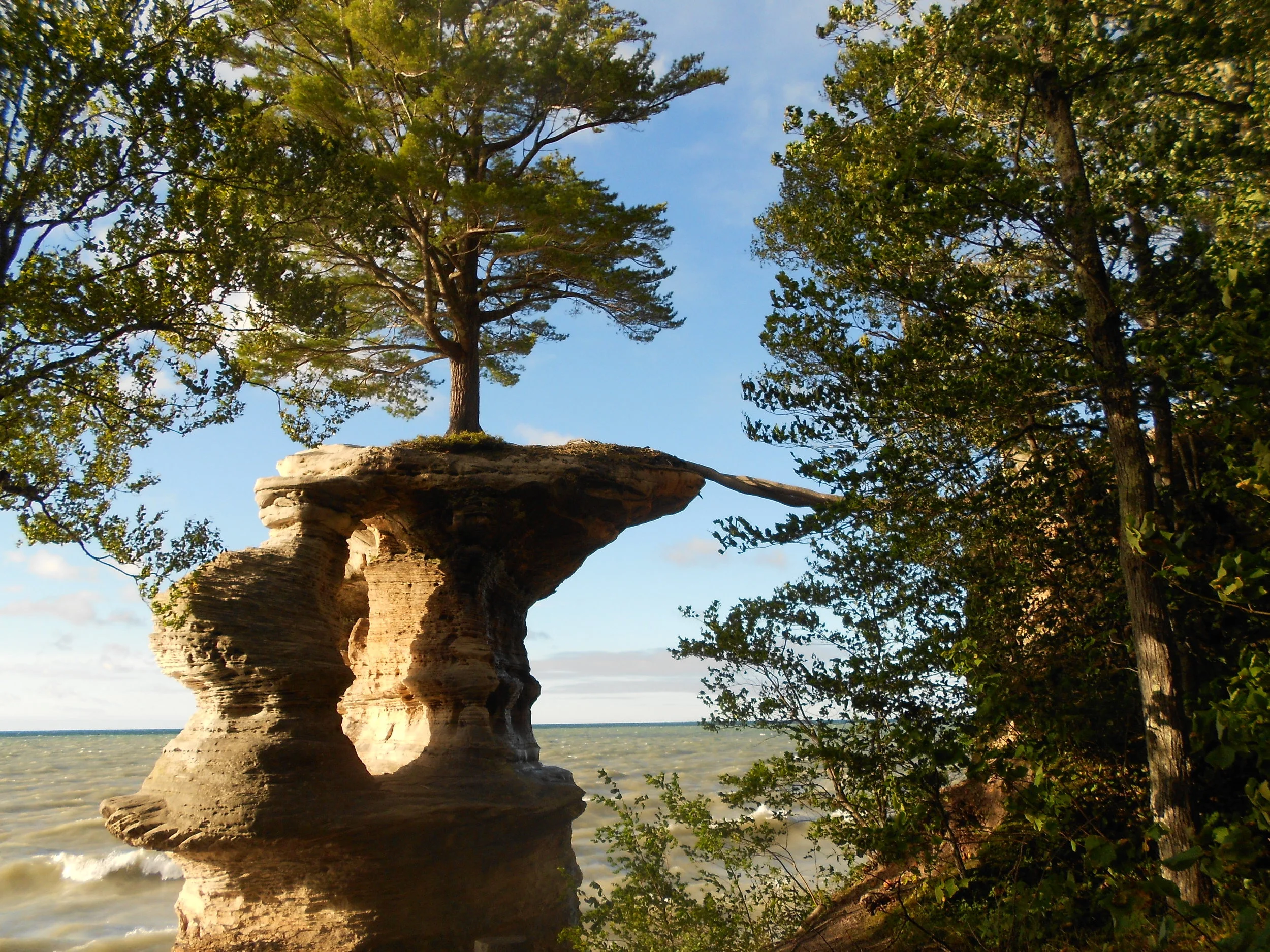leave no trace
No matter what we do, be it a day trip or multi-day expedition through the forest, we always practice Leave No Trace. There are seven principles we abide by at all times while being outdoors:
Plan Ahead and Prepare
Travel and Camp on Durable Surfaces
Dispose of Waste Properly
Leave What You Find
Minimize Campfire Impacts
Respect Wildlife
Be Considerate of Other Visitors
How many peeps per trip?
We can fit 12 people (including guide) in our Blue Whale, plus gear! If your group is larger, give us a call and we'll have the answer.
what if there's poor weather?
Rain or shine baby. We have yet to cancel a trip due to severe weather though we certainly won't rule out that possibility. Safety first.
what to bring for backpacking/overnighters?
Bring a small bag with enough clothes for the duration of your trip, plus some extras to feel good and clean on the ride back. We keep personal bags and anything not coming on the trail secure in the Blue Whale. Before each trip we send out a personal items list which is a beefier version of what's below:
Hygiene gear
Flashlight/headlamp
Extra batteries
Pocket knife
Hat
Water resistant coat
Sunscreen and lip balm
Small towel
Toilet paper
Trash bag
Lighter
What shoes are best for hiking?
If you've got hiking boots, well that's a no-brainer. Shoes or boots that provide ankle support will be your best bet on uneven or slippery terrain, and often those two are on the same patch of trail. Old gym shoes work too because they're already broken in, have soft rubber for grip and you may not care too much if they get filthy. But make sure they're not so old that they're ridden with holes and have no tread left. You'll want traction and moisture repellant on the trail. Finally, the lesser known hiking shoes or trail runners will work as well. In fact, you may already have a pair of hiking shoes or trail runners which have a more accommodating traction design and more durability. Trail runners are made by a number of mainstream brands and even some hiking shoes are found at your favorite shoe store. Ask Al Bundy for assistance.
How Heavy are packs?
All our gear is lightweight, top of the line and designed for backcountry use. Pack weight will range from 25 lbs - 40 lbs. Pack weight largely depends on how much an individual has personally brought. If packing light isn’t something you’re used to, you may find your pack is on the heavy side. However, we always do a gear check+dump of anything you won’t need on the trail. Stick to our packing list, keep that dop-kit simple and limit your personal snacks and you’ll be fine.
In case of emergency?
Your safety is top priority. Adventures Accessed will ensure that should anything happen on your trip, you'll be able to get the help you need. Guides are trained in Wilderness First Aid and beyond and have been field tested, just like your favorite outdoor gear.
are dates and times on the calendar firm?
We do our best to maintain a firm calendar but if something doesn't fit and we have room to wiggle, then we'll surely wiggle.
what clothes are best?
Refer to the Personal Items List we send upon trip reservation.
WHAT IS THE REFUND POLICY?
No refunds are given for cancellations within 60 days of your trip. Rescheduling a trip within 60 days is a 50% fee from your trip cost. If we can not fill your trip with enough people, a full refund will be given.
What about gratuity?
Gratuity is always appreciated. Standard gratuity for guides is 5-10% of the trip value. If you had a good time and felt taken care of, please leave a tip.
What do we eat?
Ahh, food! Our trips are always packed with nutritious camp food. We don’t sacrifice flavor for nutrition because we don’t have to. Backcountry pizza, lentil and white bean stew, muesli, homemade breakfast bars, fresh fruit and trail mix are mainstays. The menu is always changing and we love to eat well while on the trail. If you’ve got restrictions or allergies, just let us know and we’ll accommodate your needs.

